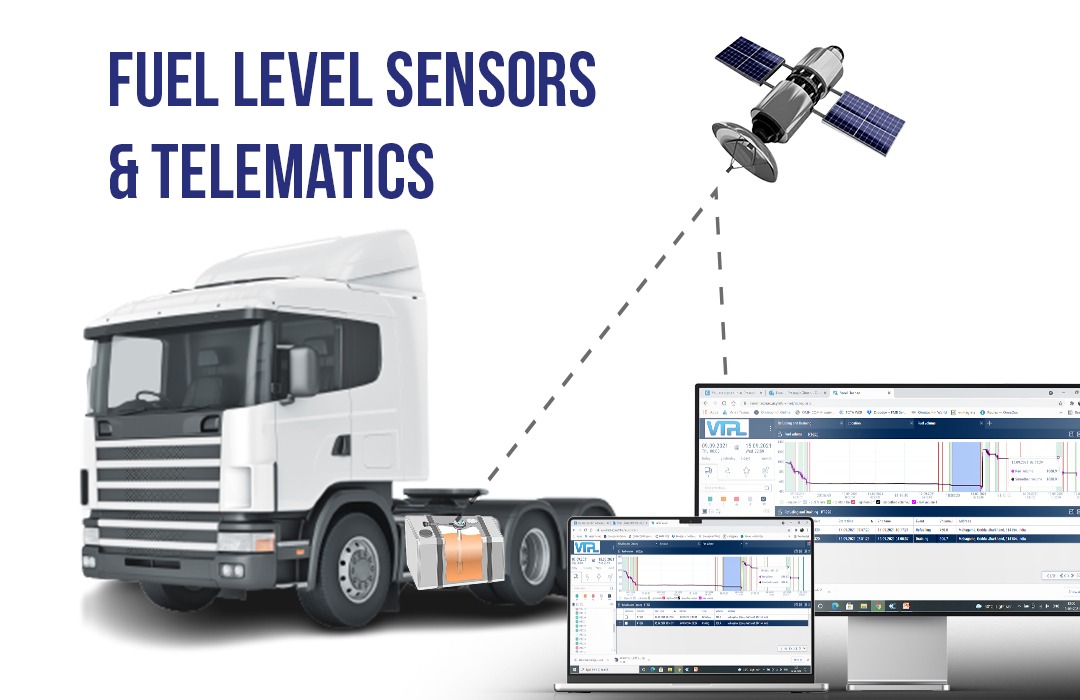
Tracking SolutionWritten By: Suman Kumar Paul
When you ask a fleet owner what their costliest and most variable expense 'fuel' is the single most common answer.
Fuel contributes at least a quarter of a fleet's total maintenance expense. However, the fuel expense is not a key issue. The main difficulty is the shortage of predictability, as the cost of fuel is affected by dozens of external political and economic factors that no fleet management company can regulate or forecast.
The best part is that the effective application of modern technology can assist fleet owners in managing challenges and addressing the difficulties of rising fuel rates.
Modern industrial fleet fuel management solutions help in the optimization of fuel expenditures by allowing administrators to regulate every operation and monitor the amount of fuel available per vehicle in real-time.
Management can deploy and execute fuel usage regulations by examining data obtained using telemetry sensors. Let us get right to the point and explore how it functions and what benefits fleet fuel monitoring systems can provide to businesses.
How Integrated Fleet Telematics & Sensing Helps in Optimizing the Fuel Consumption Rate?
Telematics and fuel sensors are at the core of every modern fuel management solution. Fleet monitoring solutions and services capture significant data about a vehicle's and a driver's behavior. Data is captured and transmitted in real time over wireless or cellular networks.
The reach and unique aspects of data processing using a telematics system can be customized to the demands of a business. Telematics data typically includes geo-location, GPS, speed, accelerometer, and more.
Furthermore, data from the Fuel level sensor is analyzed to detect and regulate fuel consumption. Gradually, if a specific vehicle begins to burn more fuel than it should, the manager receives a notification and can intervene before any failure occurs.
Unlike the old manual methodology to fuel consumption monitoring, telematics-driven fuel management does not rely on human error or time-consuming computations. As all the data is captured and maintained in the cloud, the business gains an ultimate source of insights for improved strategic and operational decisions and long-term fleet and fuel maintenance.
Managers can utilize the cloud-based data provided by telematics technologies to not only control unproductive driver behavioral patterns but also scrutinize future breakdowns or fleet maintenance challenges and rectify them proactively.
Benefits Of Fuel Monitoring Solution and Why It Is Important for Your Business?
Finally, the goal of an industrial fleet fuel monitoring system is to give businesses comprehensive, real-time data about fuel usage to control and optimize vehicle operational expenses. Employing an intelligent fuel management system assists both drivers and fleet managers.
Let us take a deeper look at the benefits.
How to Choose an Intelligent Fuel Monitoring System?
An IoT-based fuel management technology is made up of two modules: onboard sensing hardware and automated fuel tracking software (web-based, desktop, and mobile).
The hardware portion simplifies the process to capture vehicle data, which is subsequently sent to the central analytics engine for in-depth analysis. To obtain a deeper understanding of driving conditions across different routes and vehicle types, you can also incorporate big data from multiple sources including GPS systems as well as meteorological services.
To deploy an effective fuel management solution, you should first settle on the objectives and outcomes that your firm expects from the fleet monitoring system. After finalizing the goal, a fuel-tracking software development provider can develop a customized product and modular arrangement to best meet your objectives.
Final Words
Fuel management is a time-consuming and complex operation. Particularly if you cannot gather sensitive data, analyze consumption trends, or discover real-time driving stats.
A fuel tracking system functions as a data integrator, collecting, storing, and analyzing data in a protected format. In exchange, you will obtain a full picture of your past, present, and forecast fuel expenses, along with advanced reporting features and connectivity with different fuel control technologies.
Contact VTPL tracking experts to learn more about the best fuel management solution in India and tweak your fleet operational expenses.
TAGS - fuel management system fuel tracking solution Best GPS Fleet Tracking Software Advanced GPS Fleet Tracking Software GPS Tracking GPS Vehicle Tracking Solution vehicle tracking solution best tracking solution
See Also - How Tamper Proof Fuel Level Sensors Strengthen Your Fuel Management Objectives?